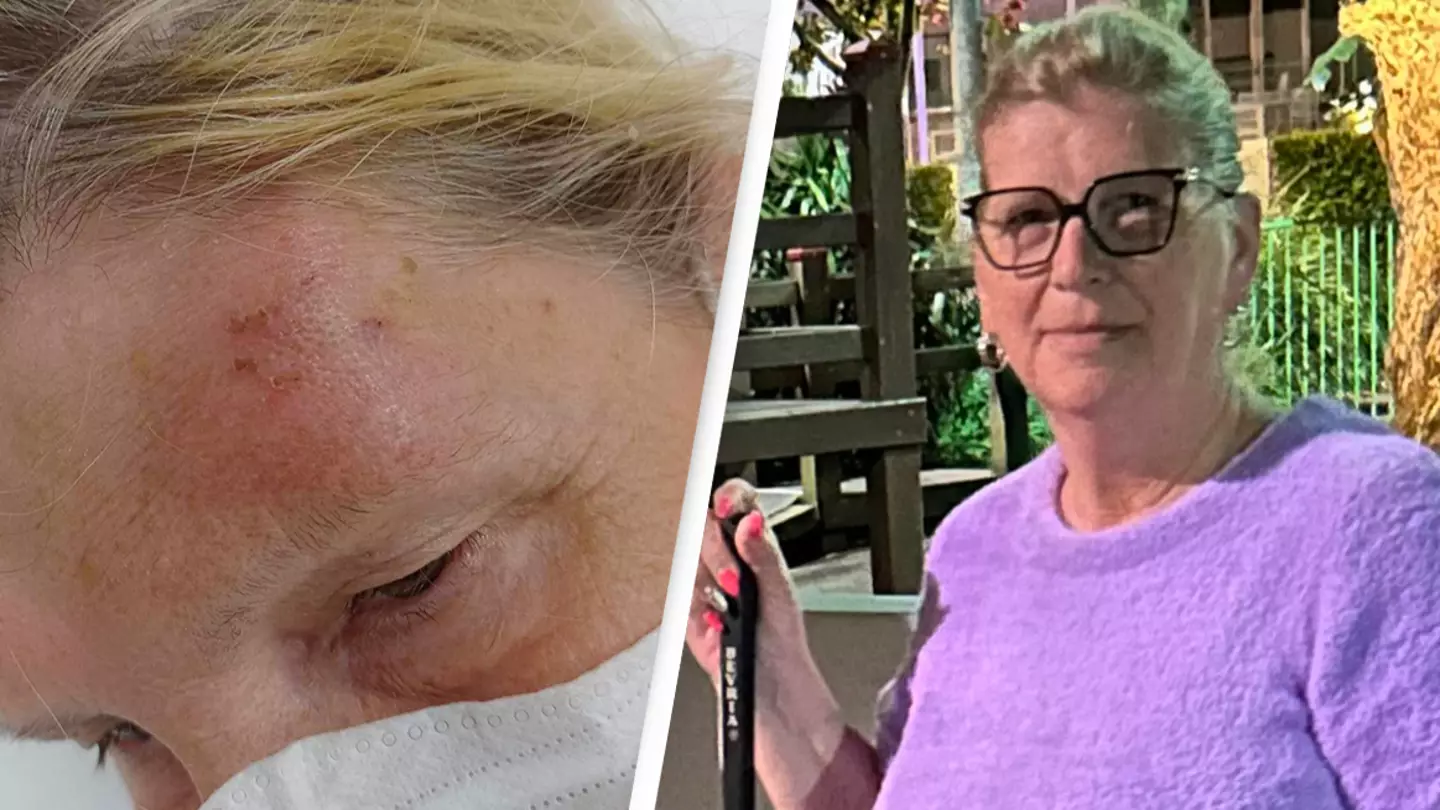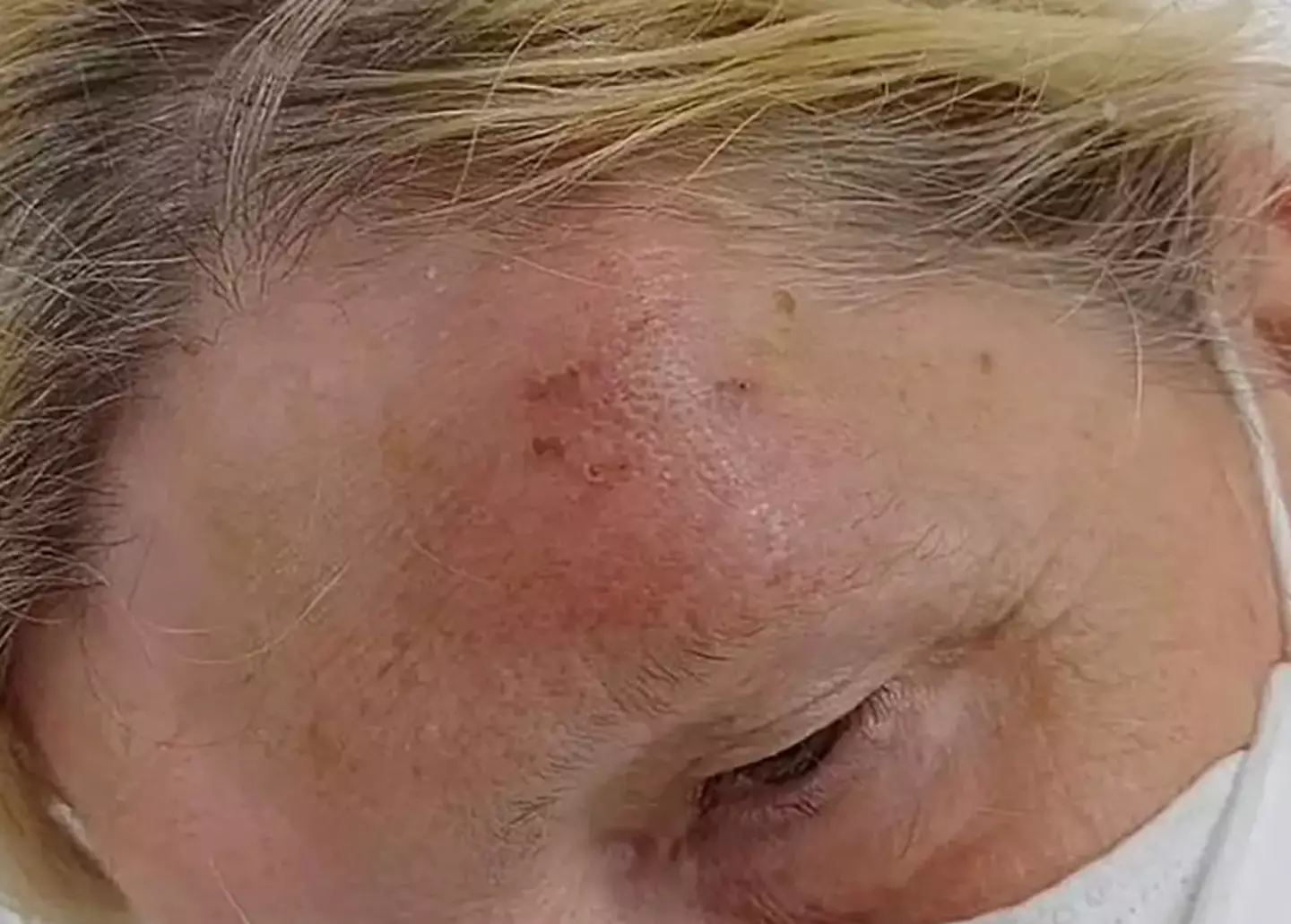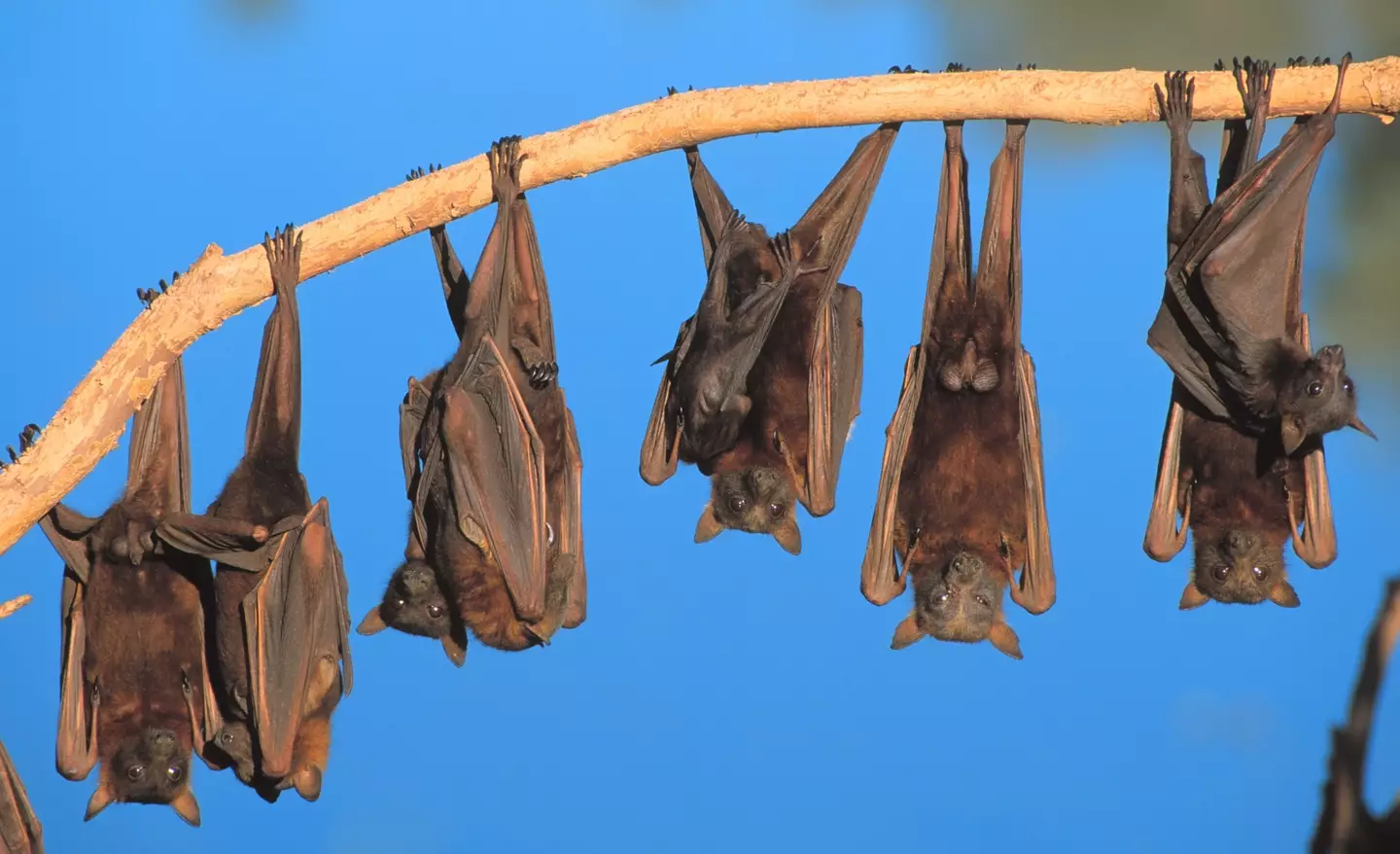
A grandmother who was bitten by a bat while on holiday in Australia now fears she may have contracted a virus which has a 100 percent mortality rate in the country.
At first, Sandi Galloway convinced herself the creature that bit her on the head while she was sightseeing in Cairns, Queensland, was 'probably a spider'.
Even when her husband, Gordon, told her it was actually a bat, Sandi told the Cairns Post she 'didn’t want to believe a bat had bitten [her]'.
Advert
It happened at around 11pm, when couple had been walking back to their hotel after having coffee with friends.
Sandi is partially blind, but she felt something 'flying over [her] head' and flicked her hand up to try and get it away.
“Next thing, I felt this sting, like two pinpricks on my forehead," she said.
Despite Sandi trying to tell herself it wasn't a bat, she couldn't deny the truth: she'd been bitten by a flying fox, the largest species of bat, which can have a wingspan of up to five feet.
After the bite Sandi began to experience some fatigue and a loss of appetite, but she was determined to put the incident behind her.
“I didn’t want to look stupid going to a doctor about the bite because I thought this doesn’t happen in real life,” she said. That is, until she spoke to her daughter.
"She told me I could get rabies from it and could die.”

Bats in Australia don't carry rabies, but they can transmit Australian bat lyssavirus (ABLV); a virus which is closely related to rabies which causes serious and usually fatal disease in humans.
Only three cases of human infection of ABLV have been recorded in Australia, all of which occurred in Queensland and were associated with being bitten or scratched by a bat. All were fatal.
Fearing for her life, Sandi booked an appointment with her doctor and was referred to an infectious disease expert, who had to fly the vaccines for the virus in from Canberra.
She now has to undergo a series of injections out of fear that she may have the virus; a situation which has forced her to postpone a yearly scan she has after being diagnosed with a brain tumor earlier in life.

“If I miss an injection, I have to start the whole process again,” Sandi explained. “I have to reschedule my MRI because I had a brain tumor and I go for yearly checkups to make sure it’s dormant, but I can’t do the MRI while taking this course of treatment."
Sandi is now calling on the government to relocate the flying foxes in Cairns, saying they should not be in a crowded area.
Cairns Regional Council is currently assessing the best course of action for the bats.
“If council is made aware of a significant flying-fox roost that may cause conflict between the people and flying foxes, signage will be posted around the site to make the community aware,” they said.